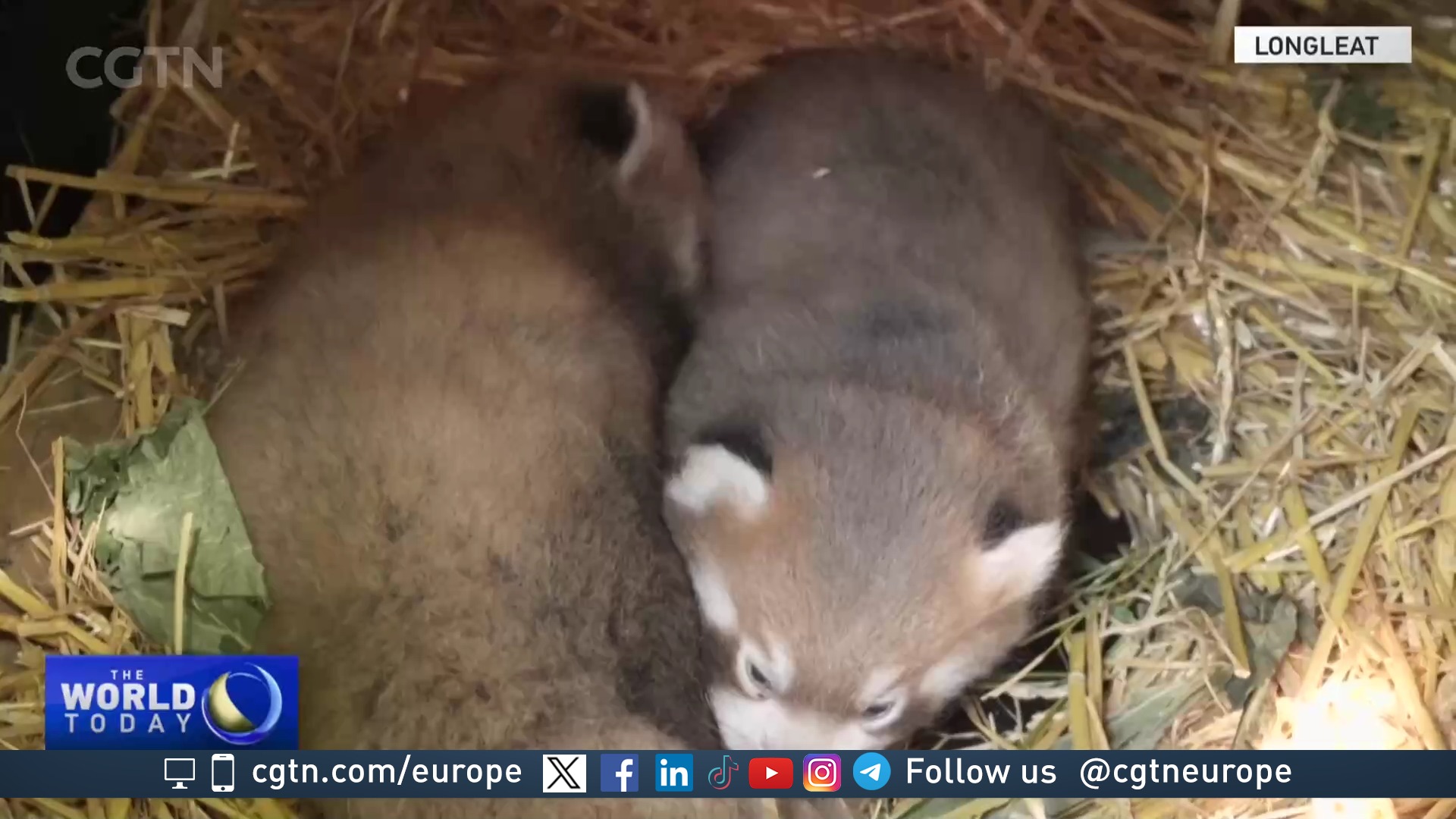02:56

Four rare red panda cubs born at two British zoos are thriving, say zookeepers. In a huge success for the European Endangered Species Programme two pairs have been bred in recent months at Whipsnade Zoo and Longleat Safari Park.
A male and female cub, named Alex and Priya, were born at Bedfordshire's Whipsnade Zoo, run by the Zoological Society of London in June.
"It is quite rare to have red panda cubs both out in the wild and in captivity - certainly a zoo setting, it's a massive success for us," said Patrick Lally, the zookeeper at Whipsnade who has been caring for the cubs since birth. "You have to provide the right environment for them to feel comfortable to breed and then become successful. And then after that stage, to survive that rearing process."
The adorable pair were born technically blind, with their eyes closed, as is usual for red pandas, but have since opened them and transformed into mini versions of their parents, with russet fur and long, bushy tails. These shy creatures take time to develop and are mostly safely tucked away in hiding.
"A day in the life for the cubs at the minute is that they will be snoozing a lot in the nest boxes," said Lally. "But they have become a lot more confident over the last few days. So they'll be exploring the island seeing what they can climb."
The cubs were briefly hauled out of their sanctuary, protesting loudly, for specialist zoo vets to give them vital vaccinations and a health check, confirming both babies are thriving, weighing around 1.5kg each.

The breeding of the red panda cubs in captivity is being heralded as a big success. /Whipsnade Zoo
The breeding of the red panda cubs in captivity is being heralded as a big success. /Whipsnade Zoo
Echoing this breeding success, two more red panda cubs were born at Longleat Safari Park in southwest England over the summer.
"We are so excited to have two new red panda cubs that have been born at the park," said Longleat keeper Sam Peeke. "The two male cubs are growing fast, and at three months old are getting braver every day and starting to pop their heads out of their nest boxes and will soon be out exploring their enclosure with their parents Emma and Lionel. Each day we are starting to see more of their personalities developing, and like most brothers they enjoy playing together."
Red pandas are extremely agile and most at home high up in the trees, where they snooze soundly, perched precariously on branches. Keepers ensure there's plenty of foliage for them to feed on in their enclosure, including the red panda's favourite meal of bamboo.
READ MORE
UN experts warn of 'grave risk of genocide' in Gaza
Türkiye celebrates centenary amid signs
Words of Wisdom
But out in the wild, bamboo and other food sources are becoming scarcer. "They are threatened due to deforestation," said Lally. "One of the reasons this affects the pandas is because it reduces the amount of bamboo that is available for them to eat, and this is their main food source."
The red panda is native to areas of the eastern Himalayas, including Nepal and parts of western China. The species is classed as endangered, with numbers down as low as 2,500 in the wild, meaning breeding in captivity is a vital part of conservation efforts.
Out in Nepal, the Red Panda Network is seeking to restore and reconnect lost habitat to help protect the species. "There are fragmented habitats, and the red panda cannot move from one place to another place, because they can't use the corridors," said Pema Sherpa, a monitoring officer with the charity. "That's also one of the causes leading to their low population because they can't breed."
She added: "They are very solitary animals. They prefer to live alone without any disturbance. So, if any kind of road construction happens in their habitat, they move to other locations."
Zoos work closely with these conservation efforts in Nepal and experts hope the red panda cubs born in captivity this year will contribute to a back-up population, helping to preserve genetic lines while the animals continue to face an uncertain future in the wild.

Subscribe to Storyboard: A weekly newsletter bringing you the best of CGTN every Friday